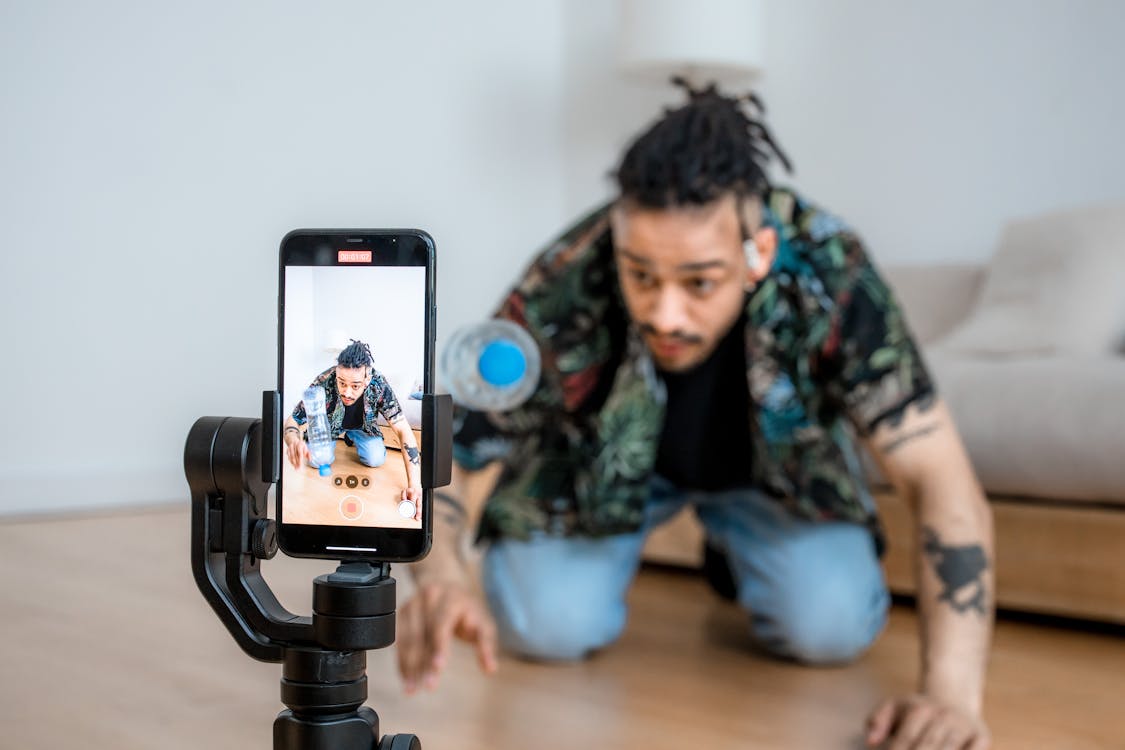The Evolution of Influencer Marketing:
The Rise of Influencer Marketing
Introduction
In today’s digital landscape, influencer marketing has become one of the most effective strategies for brands to connect with their target audiences. The traditional methods of advertising, such as television and print ads, are losing their effectiveness as consumers increasingly look for authenticity and relatability in the content they consume. Influencer marketing offers a unique approach, leveraging trusted individuals who have built strong relationships with their followers to promote products and services.
Companies like Unilever are leading the way in shifting their advertising strategies to focus more on influencer partnerships, recognizing the power of these collaborations in building trust and engagement. But how did we get here, and what does the future hold for influencer marketing? Let’s take a deep dive into its evolution, impact, and emerging trends.
The Early Days: Celebrity Endorsements
Before social media influencers, brands relied heavily on celebrity endorsements. From movie stars to professional athletes, celebrities were the face of major advertising campaigns. While this approach was effective in generating mass awareness, it lacked the personal connection that modern influencer marketing provides.
The Shift to Digital Influence
With the rise of social media platforms like Instagram, YouTube, and TikTok, a new breed of influencers emerged—individuals who gained popularity not through traditional celebrity status but by sharing relatable, engaging, and authentic content. These influencers often specialize in niche areas such as beauty, fitness, gaming, travel, and finance, creating a more personalized experience for their audiences.
The Boom of Sponsored Content
As brands recognized the potential of social media influencers, they began forming partnerships for sponsored content. Unlike traditional advertising, sponsored posts from influencers appeared more organic and blended seamlessly into their regular content. Audiences found this approach more genuine, which increased trust and engagement.
The Power of Niche Audiences
One of the key reasons influencer marketing has become so effective is its ability to target specific niche audiences. Unlike mass media advertising, which often casts a wide net, influencer marketing allows brands to reach highly engaged and loyal followers who share common interests.
Micro-Influencers vs. Macro-Influencers
- Macro-influencers (100,000+ followers): These influencers have a broad reach and are typically well-known in their respective fields. While they offer greater exposure, their engagement rates may not be as high as smaller influencers.
- Micro-influencers (10,000–100,000 followers): These influencers have smaller but highly engaged audiences. Brands increasingly favor micro-influencers because their recommendations are perceived as more trustworthy and relatable.

Authenticity Drives Engagement
Influencers succeed because of their authenticity. Their followers trust them because they provide real opinions and experiences, rather than scripted endorsements. This is a crucial reason why influencer marketing outperforms traditional advertising in engagement and conversion rates.
Unilever’s Strategic Shift Toward Influencer Partnerships
Unilever, one of the largest consumer goods companies in the world, has recognized the power of influencer marketing and is actively shifting its strategy. The company has moved away from traditional advertising methods and is investing more in partnerships with influencers who align with their brand values and target audiences.
Why Unilever is Investing in Influencers
- Trust and Credibility: Consumers trust influencers more than traditional advertisements.
- Targeted Marketing: Influencers allow Unilever to reach specific demographics more effectively.
- Higher Engagement Rates: Influencer content often generates higher engagement compared to traditional ads.
- User-Generated Content: Many influencers create original and creative content that resonates with audiences.
Case Study: Unilever’s Collaboration with Influencers
Unilever has partnered with influencers across various industries, from beauty and skincare to sustainability and wellness. Brands under the Unilever umbrella, such as Dove, Axe, and Ben & Jerry’s, have launched successful influencer campaigns that generated millions of impressions and conversions.
The Move Toward Long-Term Partnerships
Brands are now prioritizing long-term collaborations over one-time sponsored posts. Ongoing relationships between brands and influencers create stronger brand loyalty and more consistent messaging.
Performance-Based Collaborations
Instead of just paying for exposure, brands are implementing performance-based models where influencers are compensated based on engagement, conversions, and sales generated through their content.
AI-Powered Influencer Marketing
With advancements in artificial intelligence, brands are using AI tools to analyze influencer performance, audience demographics, and engagement metrics to identify the best influencers for their campaigns.
The Rise of Virtual Influencers
A new trend in influencer marketing is the emergence of virtual influencers—computer-generated characters that have amassed significant followings. These digital personalities offer brands complete control over messaging and branding while maintaining a futuristic, tech-savvy appeal.
Challenges in Influencer Marketing
While influencer marketing has many advantages, it also comes with challenges:
Fake Followers and Engagement
Some influencers inflate their numbers by purchasing fake followers or using engagement pods, which can mislead brands into investing in ineffective partnerships. To combat this, brands are now using AI tools to analyze engagement authenticity.
Regulatory and Ethical Concerns
Governments and advertising watchdogs are enforcing stricter guidelines to ensure transparency in influencer marketing. The Federal Trade Commission (FTC) and other regulatory bodies require influencers to disclose sponsored content clearly.
Oversaturation and Audience Fatigue
As influencer marketing becomes more mainstream, audiences are becoming wary of too many sponsored posts. Brands need to strike a balance between promotional content and genuine storytelling.
The Future of Influencer Marketing
The landscape of influencer marketing will continue to evolve with emerging trends:
- The rise of nano-influencers (1,000–10,000 followers), who have even more intimate and engaged audiences.
- More brands shifting towards employee influencers—using company employees as brand advocates.
- A focus on video content, especially with platforms like TikTok, Instagram Reels, and YouTube Shorts gaining popularity.
- Augmented reality (AR) and virtual reality (VR) influencer experiences, allowing consumers to engage with products in immersive ways.
Conclusion
Influencer marketing has transformed the way brands interact with consumers, shifting from traditional endorsements to authentic, community-driven collaborations. Companies like Unilever are recognizing the immense value influencers bring to the table, leading to a more dynamic and effective marketing approach.
As influencer marketing continues to evolve, brands must stay ahead of trends, prioritize authenticity, and leverage new technologies to maintain a competitive edge. Whether through micro-influencers, AI-driven strategies, or virtual influencers, the future of influencer marketing promises exciting opportunities for brands and consumers alike.
ABOUT THE AUTHOR

Justin P. Sikitiko
Justin Sikitiko is an expert in online marketing and has already built up numerous projects in which he has proven his knowledge. For OMTV, he sheds light on various business ideas, introduces entrepreneurs and inspires people to earn money online.
JOIN OMTV TODAY!
OMTV is a video-on-demand platform focused on achieving success in digital marketing. Learn how to make money solely through the internet.
Test OMTV for just $1 – full access, no risk.


